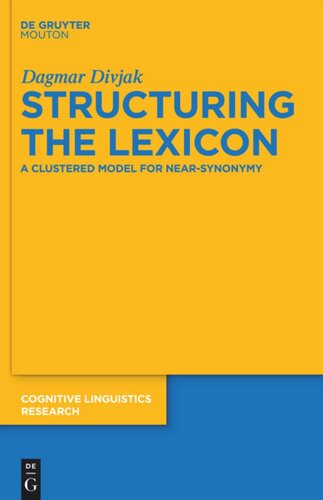

Most ebook files are in PDF format, so you can easily read them using various software such as Foxit Reader or directly on the Google Chrome browser.
Some ebook files are released by publishers in other formats such as .awz, .mobi, .epub, .fb2, etc. You may need to install specific software to read these formats on mobile/PC, such as Calibre.
Please read the tutorial at this link: https://ebookbell.com/faq
We offer FREE conversion to the popular formats you request; however, this may take some time. Therefore, right after payment, please email us, and we will try to provide the service as quickly as possible.
For some exceptional file formats or broken links (if any), please refrain from opening any disputes. Instead, email us first, and we will try to assist within a maximum of 6 hours.
EbookBell Team

0.0
0 reviewsGiven that we lack sensory-motor experience for abstract concepts, how do we find out what they mean? How far can we get by tracking frequency distributions in input? The volume tackles the question of what language has to offer the language learner in his/her quest for meaning, and explicitly addresses how semantic knowledge may be distributed along the continuum from "grammar" to "lexicon". Focus is on the synonymy of constructions and lexemes, a meaning relation that has been largely ignored in Western linguistics.
Frequency in all its guises plays a major part in this book. Approaching meaning from a usage-based perspective, a radically distributional approach to quantifying meaning is proposed that encompasses both the constructional and lexical level. Statistical data analysis, relatively new in the field of linguistics, yields a cognitively realistic, clustered model that encourages re-evaluating existing accounts of near-synonymy. Theoretical concepts spanning a range of cognitive linguistic frameworks, i.e. Cognitive Grammar, Radical Construction Grammar and Prototype Theory, account for the complexity of the data and lead to a re-appraisal of traditional semantic theory.
Built on a solid empirical foundation, this network account of synonymy at the constructional and lexical level enriches our understanding of established aspects of the cognitive model of language, serving as catalyst for their further development and refinement. The theoretically informed combination of descriptive accuracy and methodological innovation makes the book a worthwhile read for cognitive linguists and psycholinguists alike.